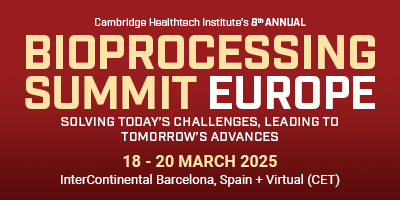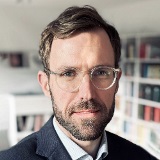Cambridge Healthtech Instituteの第6回年次
Gene Therapy Manufacturing
遺伝子治療の製造
Improving Production, Expression and Yield to Reduce Costs
生産・発現・収率の向上でコストの削減
2025年3月19日 - 20日 CET(中央ヨーロッパ標準時)
3月19日(水)
10:30Registration Open
PLENARY KEYNOTE: ADAPTING TO GLOBAL DEMANDS AND EVOLVING PIPELINES
プレナリー基調講演:世界的な需要への適応と進化するパイプライン
CMC Strategies for Diverse Pipelines and Complex Modalities
 Christian Hunzinger, PhD, Senior Director and Head, CMC Development Proteins, ADCs and Chemical Entities, BioNTech
Christian Hunzinger, PhD, Senior Director and Head, CMC Development Proteins, ADCs and Chemical Entities, BioNTech
Biopharmaceutical treatment paradigms are shifting from monotherapy towards multi-target approaches with complex multimodal entities. This complexity also translates into increasingly complex CMC development and manufacturing strategies. The talk will provide a general overview on recent developments, challenges, and opportunities, along with examples from various stages of the CMC development lifecycle.
Enhancing Process Development: Balancing Yields with Downstream Efficiency and Emerging Technologies
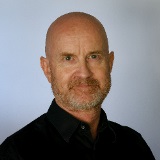 Oliver Kaltenbrunner, PhD, Scientific Director, Process Development, Amgen Inc.
Oliver Kaltenbrunner, PhD, Scientific Director, Process Development, Amgen Inc.
Explore the evolving landscape of process development, emphasising the critical balance between maximising yields and optimising downstream processing. This presentation will delve into the impact of upstream processes on primary recovery, integrating cutting-edge technologies like Process Analytical Technology (PAT), advanced modelling, and artificial intelligence. Supported by real-world examples, we'll examine how these innovations are reshaping process efficiency and performance in the industry.
12:20Session Break
12:30Sponsored Presentation (Opportunity Available)
13:00Networking Lunch in the Exhibit Hall with Poster Viewing

SCALING UP AND PREPARING FOR COMMERICALISATION
スケールアップと商品化の準備
Scaling AAV Vector Production: Challenges and Future Directions
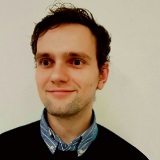 Mark Bell, Principal Bioprocessing Scientist, Purespring Therapeutics
Mark Bell, Principal Bioprocessing Scientist, Purespring Therapeutics
Purespring Therapeutics is pioneering advancements in gene therapy for kidney diseases by integrating cutting-edge technologies in AAV manufacturing. With a focus on precision therapies, Purespring is shaping future trends in gene therapy manufacturing through innovative solutions and scalable platforms. This presentation explores the company’s approach to overcoming challenges in vector manufacturing and highlights the future direction of gene therapy, setting new standards for manufacturing and therapeutic outcomes.
Advances in rAAV Manufacturing Toolboxes for Evolving Pipeline Needs
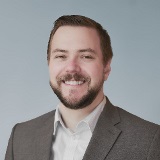 Kyle A. Zingaro, PhD, Head, Gene Therapy Process Sciences, UCB Pharma SA
Kyle A. Zingaro, PhD, Head, Gene Therapy Process Sciences, UCB Pharma SA
Recombinant adeno-associated viral vectors (rAAV) are the leading modality for in vivo gene therapies. These advanced therapeutics are complex products that are challenged by the nascent state of process understanding at the interface of product quality, process yield, and cost of goods. Here we present on the advances in rAAV manufacturing process at UCB and how we are managing that development in the context of future pipeline growth.
Process Improvements for Scalable rAAV Manufacturing
 Frank K. Agbogbo, PhD, Vice President, Process Development, Forge Biologics
Frank K. Agbogbo, PhD, Vice President, Process Development, Forge Biologics
Recombinant adeno-associated virus (rAAV) vectors have been demonstrated as gene delivery vehicles for addressing debilitating chronic diseases and conditions. However, a major challenge lies in developing a cost-efficient, optimised, and scalable manufacturing process to meet the growing global demand for these therapies. Forge Biologics has developed a scalable platform process and performed process improvements through enhanced starting materials and optimised process for high vector yield and product quality.
15:50Sponsored Presentation (Opportunity Available)
16:20Refreshment Break in the Exhibit Hall with Poster Viewing

Optimising rAAV Production: The Role of Adenoviral Helper Components and AAV Promoter Activity
 Sofia Fernandes, PhD, Senior Scientist, Animal Cell Technology, iBET Instituto de Biologia Experimental Tecnologica
Sofia Fernandes, PhD, Senior Scientist, Animal Cell Technology, iBET Instituto de Biologia Experimental Tecnologica
Recombinant AAVs are crucial for gene therapy due to their safety and lasting transgene expression. This study explores the interplay between AAV promoter activity and helper virus components. We evaluated AAV promoter activity in different mammalian cells and identified the minimal components of the adenovirus E2A and E4 that significantly impacted the overall rAAV productivity and quality of produced virus. These findings aim to improve scalability, advancing gene therapy applications.
Towards Continuous Upstream Manufacturing: The Future of AAV Production
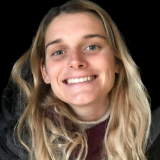 Molly B. Tregidgo, EngD, Senior Scientist, Bioprocess, Cell & Gene Therapy Catapult
Molly B. Tregidgo, EngD, Senior Scientist, Bioprocess, Cell & Gene Therapy Catapult
Intensified high cell density processes and continuous harvest are innovative strategies that tackle challenges associated with high AAV dose requirements. Here we present the development of a perfusion platform for the generation of cell densities exceeding 20E6 at high viability and transient transfection methods optimised for high cell density, with 10x improved transfection efficiency compared to batch-optimised methodologies, and perfusion culture methods facilitating continuous AAV harvest for improved yield.
INTERACTIVE BREAKOUT DISCUSSIONS
インタラクティブブレイクアウトディスカッション
Interactive Breakout Discussions are informal, moderated discussions, allowing participants to exchange ideas and experiences and develop future collaborations around a focused topic. Each discussion will be led by a facilitator who keeps the discussion on track and the group engaged. To get the most out of this format, please come prepared to share examples from your work, be a part of a collective, problem-solving session, and participate in active idea sharing. Please visit the Interactive Breakout Discussions page on the conference website for a complete listing of topics and descriptions.
Viral Vector Manufacturing-From Niche Science to an Industry, Now with Those Growing Pains
Jack Cordrey, PhD, EMEA Senior Bioprocessing Applications Specialist, Purification & Filtration, Solventum
- Regulatory environment-today and future concerns.
- Cell line and productivity-triple transfection or stable cell line?
- Early impurity removal-its impact downstream
- Encapsulation-how do we tackle empty, partial, full, and genomic DNA?
- DNA Endonuclease addition-how confident are we that we can remove this CMC concern?
18:30Close of Day
3月20日(木)
08:00Registration and Morning Coffee
OPTIMISING CELL LINE AND PROCESS DEVELOPMENT
細胞株・プロセス開発の最適化
Optimising Cell Line Development for Viral Vectors
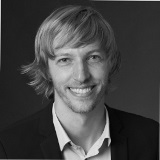 Fabian Lindel, PhD, Principal Scientist II, Novartis Pharma AG
Fabian Lindel, PhD, Principal Scientist II, Novartis Pharma AG
Lentiviral vectors are powerful tools for gene delivery mainly due to their ability to transduce non-dividing cells, large cargo capacity, and stable transgene integration. The standard production process is transient transfection. While suitable for small-scale screening, this method is cumbersome for large-scale production in terms of consistency, stability, reliability, and cost-efficiency. To address these issues, we have developed stable, lentiviral packaging clones for reliable production in oncology and gene therapy.
Stable AAV Cell Line Development
 Helena CM Meyer-Berg, PhD, Scientist, Gene Therapy, Roche
Helena CM Meyer-Berg, PhD, Scientist, Gene Therapy, Roche
Recombinant adeno-associated viral vectors (rAAV) continue to expand as a modality, however, manufacturing costs are still a limitation. Switching to stable rAAV-producing cell lines is a strategy to increase robustness and reduce cost of goods. We performed a proof-of-concept study in collaboration among Spark, Cytiva, and Roche using the ELEVECTA producer cell lines and subsequently performed process development to further optimise productivity.
Extending AAV Genome Cargo for the Delivery of Large Therapeutic Genes: Treating Duchenne Muscular Dystrophies
 Ana Sofia Coroadinha, PhD, Lab Head, Health & Pharma Division, Animal Cell Technology Unit Cell Line Development and Molecular Biotechnology Lab, IBET
Ana Sofia Coroadinha, PhD, Lab Head, Health & Pharma Division, Animal Cell Technology Unit Cell Line Development and Molecular Biotechnology Lab, IBET
Adeno-associated virus (AAV) vectors are the platform of choice for in vivo gene therapy. However, AAV vectors have a small packaging capacity impairing delivery of therapeutic genes larger than 3.5 kb in size. We are developing dual AAV systems to overcome this limitation. Duchenne Muscular Dystrophy is one of innumerous genetic diseases affecting larger genes. We will show how mini-dystrophin proteins (220 KDa) can be re-constituted with Dual-AAV vector co-delivery.
 Cell Line Engineering Strategies for Enhanced Efficiency and Quality in AAV Production
Cell Line Engineering Strategies for Enhanced Efficiency and Quality in AAV Production
 Christian Niehus, Molecular Biology and Analytics, Science, Cytiva
Christian Niehus, Molecular Biology and Analytics, Science, Cytiva
Recombinant adeno-associated viruses (rAAVs) are the leading choice for gene therapy. While transient transfection methods provide speed and flexibility, stable producer cell lines offer the potential for enhanced scalability and cost-effectiveness. Our research focuses on understanding and addressing the challenges associated with high-quality rAAV production, paving the way for more effective and accessible gene therapies. By leveraging advanced technologies, we have developed next-generation cell lines for transient and stable AAV production that minimize encapsidated host cell DNA, a particularly hard-to-tackle contaminant.
10:30Coffee Break in the Exhibit Hall with Poster Viewing

PROCESS DEVELOPMENT FOR VIRAL VECTORS
ウイルスベクター向けプロセス開発
AAVs for Gene Therapies
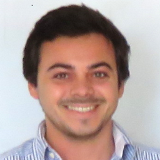 Ricardo Correia, PhD, Postdoctorate Researcher, Cell-Based Vaccines Development Lab, iBET Instituto de Biologia Experimental Tecnologica
Ricardo Correia, PhD, Postdoctorate Researcher, Cell-Based Vaccines Development Lab, iBET Instituto de Biologia Experimental Tecnologica
A CRISPR-Cas9 pipeline for genetic engineering of insect Sf9 cells yielding higher editing efficiencies than other existing methods (67% vs. 12%, respectively) was implemented. It was then applied to knock-out caspase initiator Sf-Dronc, as proof-of-concept gene, aimed at alleviating cell apoptosis during a baculovirus expression vector system (BEVS) process. The resulting engineered cell lines were characterised as per their phenotype and production of recombinant adeno-associated viruses (rAAVs).
Insect Cell Production Platform for Scalable Production of AAV for Gene Therapy
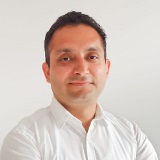 Pranav Puri, PhD, Head, Process Development, VectorY Therapeutics
Pranav Puri, PhD, Head, Process Development, VectorY Therapeutics
VectorY develops Vectorised Antibodies (VecTabs) which utilise an AAV vector to deliver the transgene to the target CNS cells where the therapeutic antibody is subsequently produced, and clears the toxic variants of target proteins to improve neuronal health and halt disease progression. The presentation will present AAV production platform "ManuVec" which produces VecTabs from an optimised Baculovirus/insect cell platform in high yields, quality, and potency in a robust manner.
 Harnessing Chromatography and Ultracentrifugation Breakthroughs for AAV Capsid Ratio Assessment
Harnessing Chromatography and Ultracentrifugation Breakthroughs for AAV Capsid Ratio Assessment
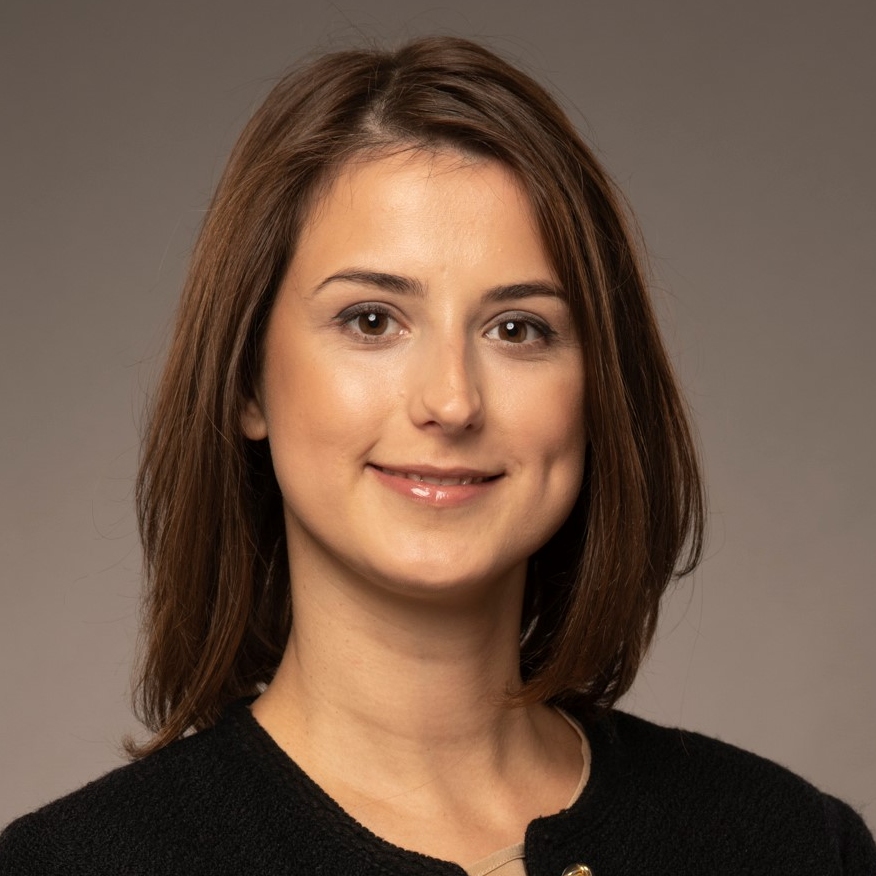 Ivana Petrovic Koshmak, Process Development Manager, Advanced Therapy Solutions, Sartorius
Ivana Petrovic Koshmak, Process Development Manager, Advanced Therapy Solutions, Sartorius
Analytical tools for assessing empty and full AAV capsids often involve trade-offs among accuracy, precision, and resolution, balanced against time, skill level, and financial resources. Reproducibility challenges across different laboratories, frequently observed with sensitive equipment and varying protocols, further complicate this landscape. Consequently, chromatography is increasingly recommended for its robustness and ease of implementation from R&D to QC labs. This talk explores the use of the PATfix AAV Switcher to optimize AAV production and enable in-process monitoring during production batches. We compare two bioreactor-scale production runs to assess upstream optimization's effectiveness in reducing key impurities. Additionally, we discuss expanding the PATfix system with an ultracentrifugation (UC) module, offering a cost-effective and straightforward alternative to analytical ultracentrifugation for post-density gradient profiling of AAV materials.
12:40Networking Lunch in the Exhibit Hall with Poster Viewing

DIGITALIZATION AND AUTOMATION IN ADVANCED THERAPIES
先端治療におけるデジタル化と自動化
Development of a Digital Twin for AAV Production
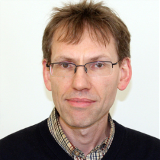 Frank Baganz, PhD, Associate Professor, Fermentation and Cell Culture, Biochemical Engineering, University College London (UCL)
Frank Baganz, PhD, Associate Professor, Fermentation and Cell Culture, Biochemical Engineering, University College London (UCL)
rAAV processes with complex dynamic behaviour requires high experimental effort, and is time consuming and expensive. Digital Twins (DT) that are based on mathematical models can be used for process development and optimisation. A mechanistic model of an rAAV9 production process has been developed and parameterised using in-house experimental data. The validation of the DT models and its application to increase the functional rAAV9 titre will be demonstrated.
Navigating Regulatory Challenges for Closed Processing in ATMPs
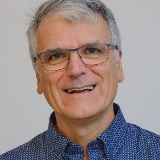 David Estape, PhD, Technology Manager and Senior Fellow, Process Engineering, CRB Group GmbH, Member, BioPhorum, ISPE
David Estape, PhD, Technology Manager and Senior Fellow, Process Engineering, CRB Group GmbH, Member, BioPhorum, ISPE
Focusing on regulatory challenges, this presentation explores the role of closed processing in Advanced Therapy Medicinal Products (ATMPs). Closed systems, together with standard process platforms and automation-digitalisation, are key for the future of ATMP manufacturing. Through the analysis of the current guidelines, this presentation draws how regulatory frameworks may either support or hinder closed systems adoption. The final goal is to align closed processing with current and future regulations.
15:00Close of Summit
* 不測の事態により、事前の予告なしにプログラムが変更される場合があります。
アジェンダ・講演者・スポンサー更新
